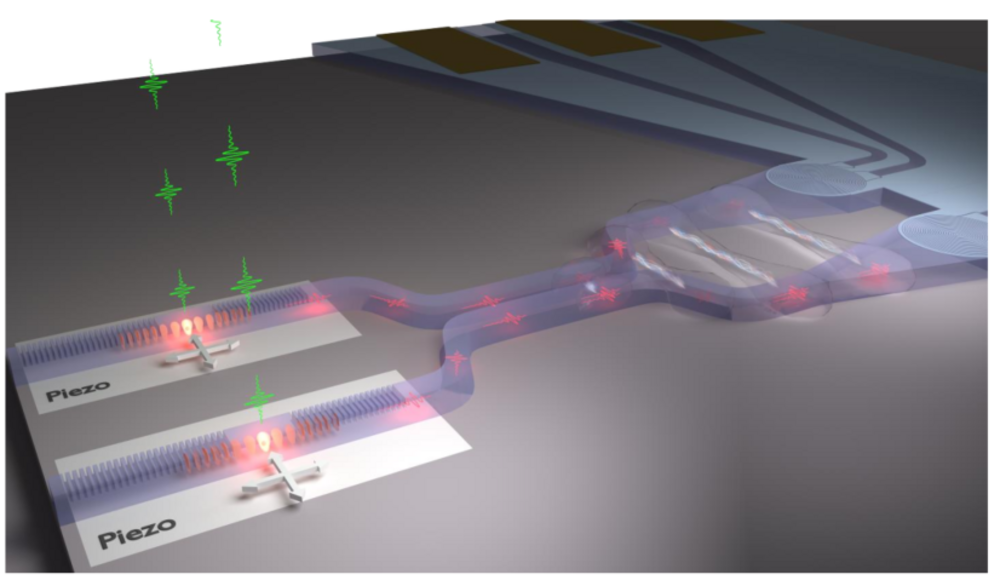Photons, the elementary particles of light, represent essential resources for emerging quantum technologies, such as quantum communication and quantum computation. In order to perform operations with photons, it is necessary to build up circuits for light, similar to electronic circuits. These circuits require sources capable of emitting a well-defined number of photons, waveguides - where photons can propagate, elements enabling interaction between different photons in the circuit, and highly-sensitive detectors.
Among different strategies to obtain such “quantum photonic circuits”, semiconductor platforms are particularly attractive because of the well-developed fabrication technologies and the possibility to integrate high-quality photon sources in the circuit. The natural choice for the semiconductor source is represented by so-called quantum dots, which are nanoscopic structures that, different from classical sources, can emit single photons “on demand”. In spite of the potential of building up complex networks with this architecture, progress is limited to circuits with only one quantum dot. The reason is that different quantum dots in a chip are usually located at non-optimal positions and emit photons with different colors and with different characteristics. This hinders the efficient interaction between different photons and severely limits the range of potential applications.
The goal of this project is to develop and use an innovative platform enabling the simultaneous operation of multiple quantum dot sources in a photonic circuit. To achieve this goal, we will combine complementary expertise available at the Universities of Stuttgart and Linz to build up photonic chips, where the color and properties of photons emitted by different quantum dots can be precisely controlled using mechanical deformation. In turn, the latter will be achieved by placing the photonic circuits on top of a patented piezoelectric platform, which convert applied voltages in controllable deformations.
Different form approaches presented in the literature, we will precisely place quantum dots at the inputs of the photonic circuit and precisely control the emission properties of independent sources by our new piezoelectric platform. To maximize chances of success we will work on two different semiconductor material systems. This shall allow us to demonstrate the highest levels of photon interaction achieved to date, thus paving the way to complex networks.

JKU PI: Armando Rastelli
Funding agency / scheme: FWF / DACH
Funding period: 01.10.2019 – 30.09.2022